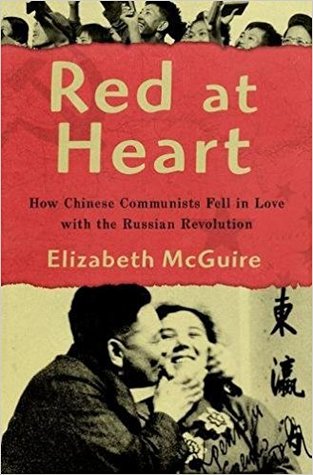(Ebook) Red at Heart: How Chinese Communists Fell in Love with the Russian Revolution by Elizabeth McGuire ISBN 9780190640552, 0190640553
Beginning in the 1920s thousands of Chinese revolutionaries set out for Soviet Russia. Once there, they studied Russian language and experienced Soviet communism, but many also fell in love, got married, or had children. In this they were similar to other people from all over the world who were enchanted by the Russian Revolution and lured to Moscow by it.The Chinese who traveled to live and study in Moscow in a steady stream over the course of decades were a key human interface between the two revolutions, and their stories show the emotional investment backing ideological, economic, and political change. They embodied an attraction strong enough to be felt by young people in their provincial hometowns, strong enough to pull them across Siberia to a place that had previously held no interest at all. After the Revolution, the Chinese went home, fought a war, and then, in the 1950s, carried out a revolution that was and still is the Soviet Union's most geopolitically significant legacy. They also sent their children to study in Moscow and passed on their affinities to millions of Chinese, who read Russia's novels, watched its movies, and learned its songs. Russian culture was woven into the memories of an entire generation that came of age in the 1950s--a connection that has outlasted not just the Chinese Cultural Revolution and the collapse of the Soviet Union, but also the subsequent erosion of socialist values and practices. This multi-generational personal experience has given China's relationship with Russia an emotional complexity and cultural depth that were lacking before the advent of twentieth century communism--and have survived its demise. If the Chinese eventually helped to lead a revolution that resembled Russia's in remarkable ways, it was not only because class struggle intensified in China due to international imperialism as Lenin had predicted it would, or because Bolsheviks arrived in China to ensure that it did. It was also because as young people, they had been captivated by the potential of the Russian Revolution to help them to become new people and to create a new China.This richly crafted and narrated book uses the metaphor of a life-long romance to tell a new story about the relationship between Russia and China. These lives were marked by an emotional engagement that often took the form of a romance: love affairs, marriages, divorces, and "love children," but also inspiring revolutionary passion. Elizabeth McGuire offers an alternative to the metaphors of brotherhood or friendship more commonly used to describe international socialism. She presents an alternate narrative on the Sino-Soviet split of the 1960s by looking back to before the split to show how these two giant nations got together. And she does so on a very personal level by examining biographies of the people who experienced Sino-Soviet affairs most intimately: Chinese revolutionaries whose emotional worlds were profoundly affected by journeys to Russia and connections to its people and culture.
*Free conversion of into popular formats such as PDF, DOCX, DOC, AZW, EPUB, and MOBI after payment.


